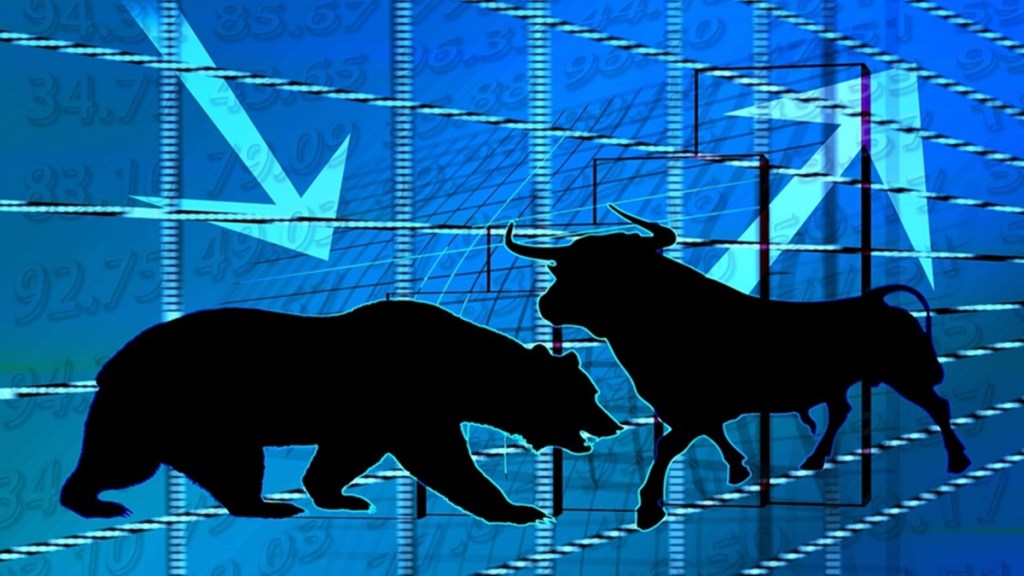The Federal Reserve raised interest rates for the tenth time in a row. The Federal Funds Rate was raised by 25 basis points to take the range to 5% – 5.25%, the levels last seen in 2006. Even though inflation seems to be cooling down, at least the headline numbers, the economic environment is showing worrying signs. In fact, inflation still remains far from the Fed’s target and that is what is going against market sentiments. Powell, in the press conference, hinted at more measures as inflation still remains off-target. Markets fell after Powell’s speech and the economic conditions are worsening.
“The Federal Reserve has made a mistake by delivering a 25 basis-point interest rate hike amid ongoing financial market turmoil and recession red flags,” says Nigel Green, CEO, deVere Group, one of the world’s largest independent financial advisory, asset management and fintech organizations.
Also Read – US Fed hikes rate by 25 bps in May: The road ahead for the markets
Green notes: “The Fed failed early on with inflation due to its grand-scale inaction. It was a hugely consequential miscalculation by the world’s most influential central bank. The Fed has now failed again, making another mistake, this latest interest rate hike, which could push the world’s largest economy not only into a short-term but a longer-term recession. Clearly, this would not only be a huge issue for the US but the global economy too.”
Also Read: Warren Buffett’s value investing strategy to get rich
Sunil Damania, Chief Investment Officer, MarketsMojo says, “We would have preferred that the Federal Reserve not raise interest rates, given the current state of the banking industry in the US. PacWest Bank is currently facing financial difficulties and may follow the same path as SVB and First Republic. The recent rate hike is likely to complicate the situation. In addition, the US may face challenges in its commercial real estate market, which is another potential danger.”
“It is our belief that this will be the final rate hike from the Fed this year, and there is a high probability that the Fed will begin reducing interest rates in the second half of 2023. The US banking industry’s current state is far from satisfactory and could pose problems for the global equity market,” says Damania.
The deVere CEO cites three primary reasons why he believes the US central bank is wrong to have raised rates this time.
“First, the crisis within the US financial system is still not over. There remain serious and legitimate concerns that after a string of bank failures, there could be more to come.
The turmoil from the banking crisis is leading to a drop in bank lending, tightening the credit conditions for households and businesses. In turn, this will inevitably lead to a slowdown in economic activity and hiring.
Chair Powell himself has said at a news conference that the bank turmoil had the equivalent impact of at least one quarter-point rate increase. The Fed’s interest rate hiking agenda has tightened financial conditions which, in part, led to the banking crisis, and now the banking crisis itself is going to put the squeeze on financial conditions even more.”
Nigel Green continues: “Second, the time lag for monetary policies is very long. It is said that it takes about 18 months to two years for the full effect of rate hikes to filter fully into the economy.
“Third, the bond market is suggesting a long and/or deep recession with its inverted yield curve. Yields are inversely related to bond prices.
“This is typically the sign of a coming recession – an inverted yield curve has emerged roughly a year before nearly all recessions since 1960.”
Voice are being heard about the Fed pause and the markets may have already discounted a pause in the enxt FOMC meeting in June. How the banking crisis unfolds and not turn into a contagion, remains to be seen. Nigel Green concludes: “The failing Fed has made another mistake. We can only hope now that this is their last rate hike for a while for the good of the real economy and to restore some of their own credibility.”

